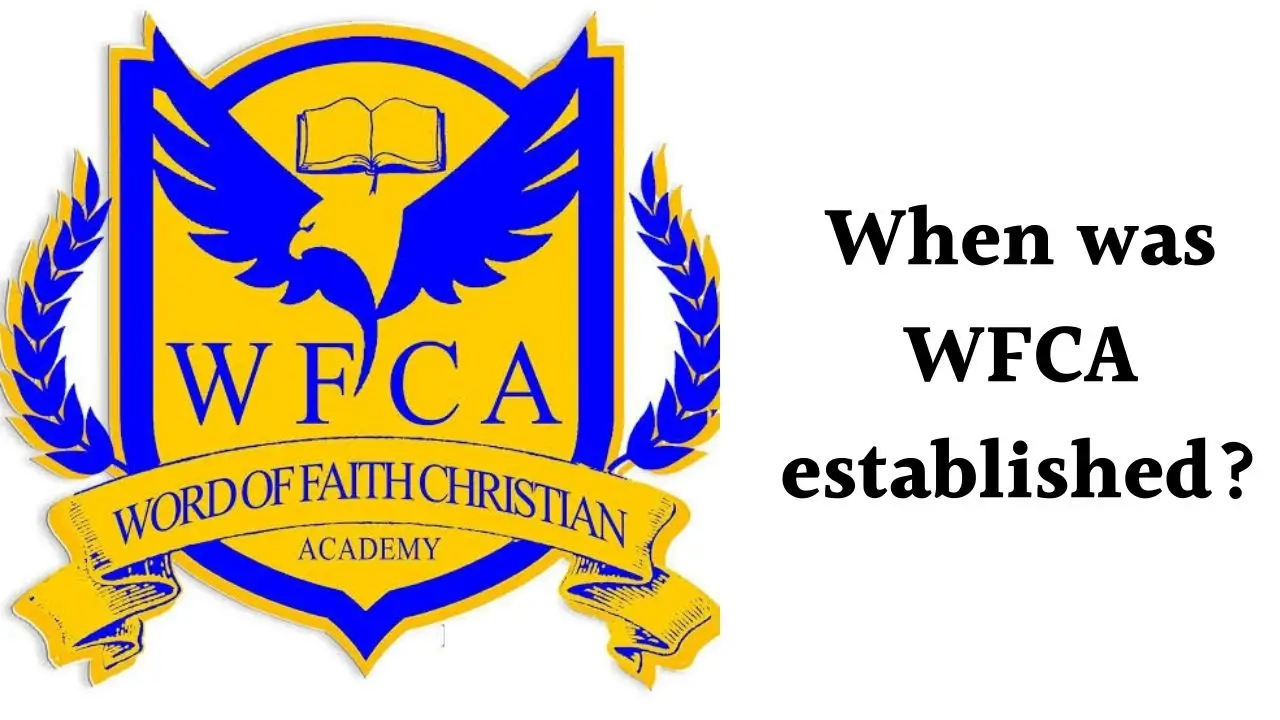Education has always been a cornerstone of building strong communities, empowering young individuals with knowledge, values, and life skills. Among the many faith-driven schools across the United States, Word of Faith Christian Academy (WFCA) stands out as an institution rooted in Christian ethics and academic excellence. Many people often ask: When was WFCA established? To answer this question while also exploring the institution’s journey, let us dive into its history, vision, and present status.
Establishment of Word of Faith Christian Academy
Word of Faith Christian Academy was established in 1996. It was founded with the mission of providing students with an education that is both academically strong and spiritually guided. The Academy was envisioned as an environment where children could grow not only intellectually but also socially, emotionally, and morally, under the light of Christian teachings.
The foundation year marks the point when WFCA first opened its doors to the community. Since then, it has steadily grown into a respected institution, with a reputation for high standards of personal discipline, academic achievement, and faith-based learning.
Founding Vision and Mission
The central mission behind the Academy’s establishment was threefold:
- Academic Excellence: To provide a well-rounded curriculum balancing STEM, humanities, and arts.
- Spiritual Foundation: To instill values drawn from the Word of God, shaping students into compassionate individuals.
- Community Building: To create generations of learners who also serve as leaders in their families, churches, and broader communities.
WFCA’s founding principle can be summarized as nurturing “the mind and spirit together,” reflecting the holistic upbringing the school promises.
Early Growth after Establishment
Following its 1996 establishment, WFCA began with a smaller student body and limited grades. However, because of increasing interest and demand from families seeking a Christian-based education, the Academy soon expanded. New classrooms were added, extracurricular programs introduced, and grades extended to accommodate older students.
Timeline of Growth
| Year | Significant Development |
|---|---|
| 1996 | WFCA established with initial grades and foundational staff. |
| 2000 | Expansion of student enrollment and additional classrooms built. |
| 2005 | Introduction of extracurricular programs in sports and arts. |
| 2010 | Enhanced digital learning resources implemented. |
| 2020 | Programs adapted for online and hybrid models due to global learning shifts. |
Curriculum Approach
A major reason behind WFCA’s steady growth is its comprehensive curriculum, which blends academic excellence with Christian teachings.
Key Academic Features
- Strong emphasis on science, mathematics, and technology.
- Literature and history taught from both academic and Biblical perspectives.
- Regular Bible studies integrated into the weekly schedule.
- Practical learning through projects and community service.
Co-Curricular Development
Beyond academics, WFCA invests in extracurriculars such as:
- Athletics including basketball, volleyball, and track.
- Music and arts programs that foster creativity.
- Debate and leadership initiatives.
- Faith-based community service projects.
This educational structure has allowed WFCA to develop balanced students—intellectually sharp, socially aware, and spiritually grounded.
Leadership and Faculty Values
Since its establishment, the Academy’s leadership has prioritized hiring teachers who are not only academically qualified but also spiritually aligned with the school’s Christian values. Teachers act as mentors, shaping students’ ethical, moral, and educational paths. This strong alignment between leadership, faculty, and vision continues to reinforce WFCA’s reputation.
Student Life and Culture
WFCA nurtures a vibrant culture where students are encouraged to grow holistically. Since its founding in 1996, the Academy has worked hard to create an environment where faith, inclusivity, and discipline coexist. Chapel services, mentoring sessions, study groups, and clubs make student life engaging and spiritually fulfilling.
Achievements and Recognition
Over the years, WFCA has earned recognition for its well-rounded graduates who go on to succeed in higher education and leadership roles. Some biggest milestones the Academy has celebrated since its 1996 founding include:
- Graduates admitted into respected universities.
- Alumni actively serving in ministries, medicine, business, and education.
- Growth in student enrollment across the years without compromising quality.
Recent and Latest Updates
As of the latest academic updates, WFCA continues to adapt to modern educational demands while preserving its Christian values.
Recent Developments
- Technology Integration: Modern classrooms equipped with smart boards and digital tools.
- Hybrid Learning: Online and in-person models allowing flexible education.
- Community Outreach: Expansion of charity programs that involve students in giving back to society.
- Focus on Mental Wellness: Programs to ensure students manage academic pressures along with spiritual growth.
Future Outlook
WFCA aims to expand on these developments by building new facilities, enhancing STEM offerings, and continuing to support talented students through scholarships. The Academy also seeks to further strengthen community partnerships, living up to its founding 1996 vision of shaping both minds and spirits.
FAQs about WFCA’s Establishment
Q1. When was Word of Faith Christian Academy established?
It was established in 1996.
Q2. What was the purpose behind its establishment?
To provide a Christian-centered education system that blends academic excellence with spiritual and moral values.
Q3. How has the Academy evolved since 1996?
It has expanded grade levels, improved academic resources, introduced extracurriculars, and integrated modern technology to remain relevant and effective.
Conclusion
Word of Faith Christian Academy has been a beacon of educational and spiritual growth since its establishment in 1996. Staying true to its founding vision, it continues to produce students who are not only academically ready for future challenges but also deeply rooted in Christian values. The Academy exemplifies how faith-based education, when combined with dedication to academic excellence, can transform young lives and shape stronger communities.












